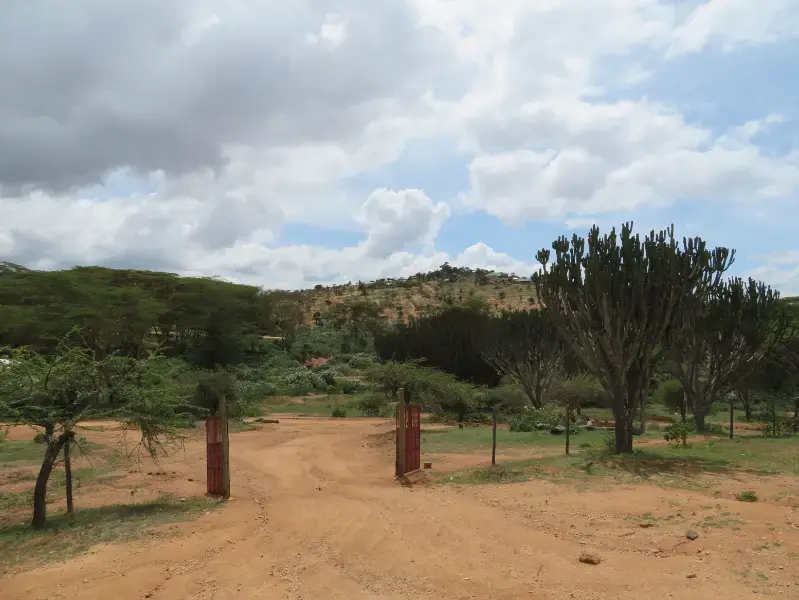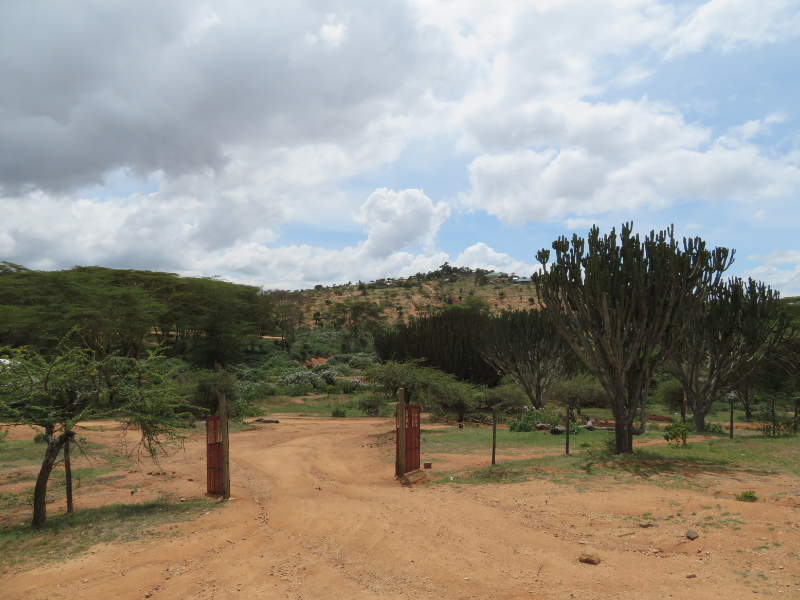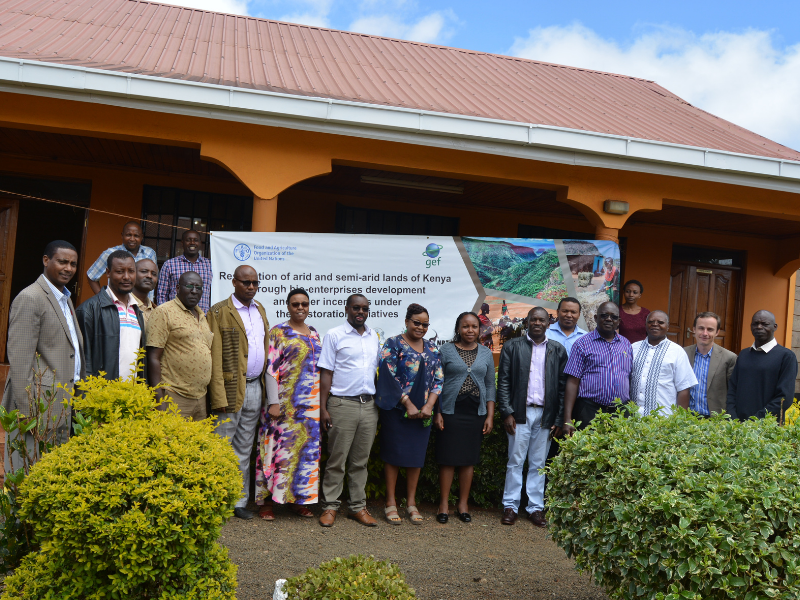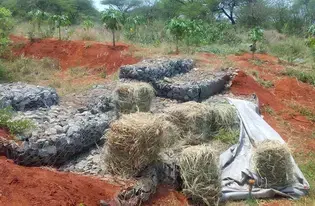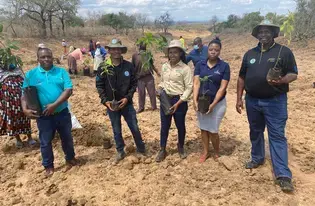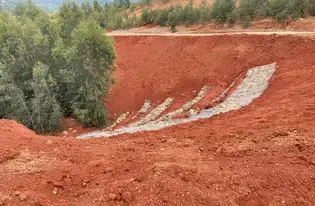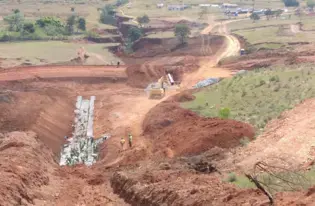Between 1990 and 2010, Kenya’s forest cover decreased from 12 percent to only 6 percent. The country has now committed to bring it back to 10 percent by 2030. In Kenya’s Arid and Semi-Arid Lands (ASALs), deforestation is largely driven by increasing local demand for wood for construction and cooking, overgrazing, and grass fires. Deforestation and land degradation are especially serious in areas where droughts, exacerbated by climate change, are threatening already limited water supplies. While Kenya has adopted several forest and land management policies to halt the negative trend, policy and capacity gaps remain. To achieve Kenya’s tree cover goal, people need alternative, more sustainable livelihoods.
The Restoration Initiative (TRI) of the Food and Agriculture Organization of the UN (FAO) is adopting an integrated approach to address deforestation, land degradation and biodiversity loss in Kenya’s arid lands. The program is building up policy and institutional capacity in the Mount Kulal Biosphere Reserve in Marsabit County and the Mukogodo landscape in Laikipia and Isiolo Counties. Their goal is to protect what remains and restore the rest of Kenya’s arid lands.
Key to their strategy for 2018 to 2023 is helping local communities create sustainable businesses centered on marketable non-timber forest products, like mangoes. The project’s goal is to reduce degraded land by 20 percent in its target areas. Between 2018 and 2023, over 51,000 people will work together to better manage 300,000 hectares of farms and pastures. They will also directly restore 8,700 hectares of degraded land, reducing greenhouse gas emissions by an estimated 820,000 tons by 2038.
The Global Environment Facility (GEF) is funding this project with $4,157,340 USD.
